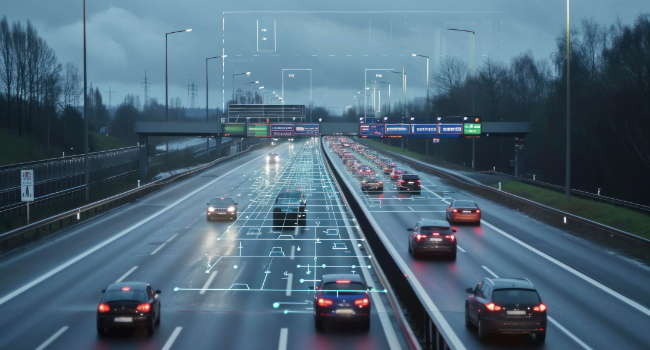
September / October 2024
- Optimizing Security and Business Performance with Clarity and Control
- Why Communication is Key in an Emergency
- Beyond Analytics
- Leveraging Smart Sensors
- Unlocking the End-user Perception
- Trust But Verify
Cover Story

The Essential Role of Digital Platforms in Security Management
By Tony Byerly
In recent years, the security sector has experienced a significant influx of innovative technologies that have fundamentally transformed how organizations design, implement, and oversee their security programs. The widespread adoption of cloud-based infrastructure, edge processing, and AI or machine learning (ML) driven analytics has brought about revolutionary changes in applications such as access control, video surveillance and emerging areas like threat detection and drone identification.
Features

By Andy Schreyer
In today’s dynamic business environment, companies specializing in physical security are constantly evolving to remain competitive. One strategic shift these businesses can make to give them the advantage is a full or partial transition to a recurring revenue model, popularly called a subscription service. This approach will bring numerous benefits that not only enhance business stability but also improve customer relationships and drive innovation. Recurring monthly revenue (RMR) or recurring annual revenue (RAR) are two recurring cadence choices that work simply and effectively.

By Dan Berg
Physical security technology plays a crucial role in detecting and preventing insider cybersecurity threats. While it might seem like a stretch to connect physical security with cyber threats, the two are closely intertwined. Here’s how physical security technology can be leveraged to address both external and internal threats.

21st Century Video and Video Integration
By Rob Hile
After more than 30 years in the security integration business, today’s video surveillance systems are certainly not the same CCTV systems I sold and installed when I first started hanging cameras. Back in the day, there were only a handful of companies out there and one that started with a “P” stood above the rest. If you were fortunate enough to get invited to travel on their private jet out to California to tour the factory, it was a real honor. I have a picture somewhere in my garage collecting dust, of me sitting in the co-pilot seat. I know, old-man highlights, but still very cool.

By Monique Merhige
During an emergency, communication with the outside world can be a critical component when it comes to response time and saving lives. Emergency communications typically consist of alerts and warnings; directives about evacuating the premises; information about response status, and other matters that can impact response and recovery.

It is time to start holding your software and hardware vendors accountable
By Tom Pace
Today’s world is built on software—whether it is third-party applications, open-source libraries, in-house developed tools, operating systems, containers or firmware. Organizations worldwide depend on these diverse software components to power their operations, connect with customers, and drive innovation. However, this reliance on software comes with hidden dangers: the blind trust placed in these software products. Many companies assume that the software they purchase, and use is secure and free from vulnerabilities, but recent high-profile software supply chain breaches have proven otherwise. The reality is that every piece of software, no matter how reputable the source, increases the organization’s attack surface and poses new risks.

By Charles Pitman
A 2023 Statista report projects that by 2030 there will be 30 billion Internet of Things (IoT) devices in use. That is three times as many as there were in 2020. The numbers continue to grow because connecting sensors and systems, especially across a business, promises big efficiency gains and new insights. As such, the IoT and IIoT (Industrial Internet of Things) have become a launching pad for digital transformation -- not only for individual organizations but for entire industries.

By Dave Baker
Event season is well underway, with organizations across industries hosting bustling customer conferences, flagship brand events and exclusive meetups for their top VIPs. As security leaders’ partner with events teams, and brand leaders ensure the safety of all attendees, there is a major consideration they must plan for: The upcoming election.

Modern ALPR software running on the edge
By Ralph C. Jensen
From border security to parking lots, ALPR has gained traction across multiple use cases as the technology becomes more accurate and affordable than ever. I spoke with Jason Cook, business development director at Vaxtor, a leader in ALPR AI-based analytics, and Rui Barbosa, category manager, Surveillance Products at i-PRO, a maker of AI-enabled security cameras, to delve into the latest advancements and applications of ALPR technology. Automated License Plate Recognition (ALPR) has transformed significantly over the years, evolving from a niche technology into a powerful tool for a wide range of applications, particularly in border security.

By Brad Cary
The integration of smart sensors with data-driven video technology provides schools with a comprehensive solution to enhance safety and security. This combination offers advanced capabilities such as environmental monitoring, audio analytics, vape detection and unified data management, empowering schools to create a secure and healthy learning environment for students and staff.

By Heidi Hunter
An observation as a creator of identity verification solutions is that while industry leaders are often excited by the opportunity to leverage biometrics, there are often concerns raised about the end-user mindset during the conversation. Primarily, what are end-users’ expectations of biometric technology? What concerns might they have about its usage to authenticate and protect their access?

Enhancing security at the University of Iowa through integrated systems and key management
By Dirk Welch
The security engineering services team at the University of Iowa recently underwent a process that many institutions of higher education face – integrating innovative technology with its existing security system, specifically with key management solutions. Understandably, they were hesitant at first and ran into challenges. Still, when they identified the correct technology to communicate with their existing ecosystem, the immediate results necessitated expanded adoption.

By Monique Merhige
In recent years, we have seen an influx of security systems integrators getting on the recurring monthly revenue (RMR) bandwagon post-pandemic. During this time, the security industry has experienced a high demand for as-a-service offerings, not only from customers, but on the integration side.